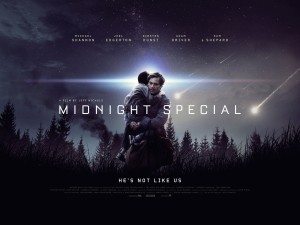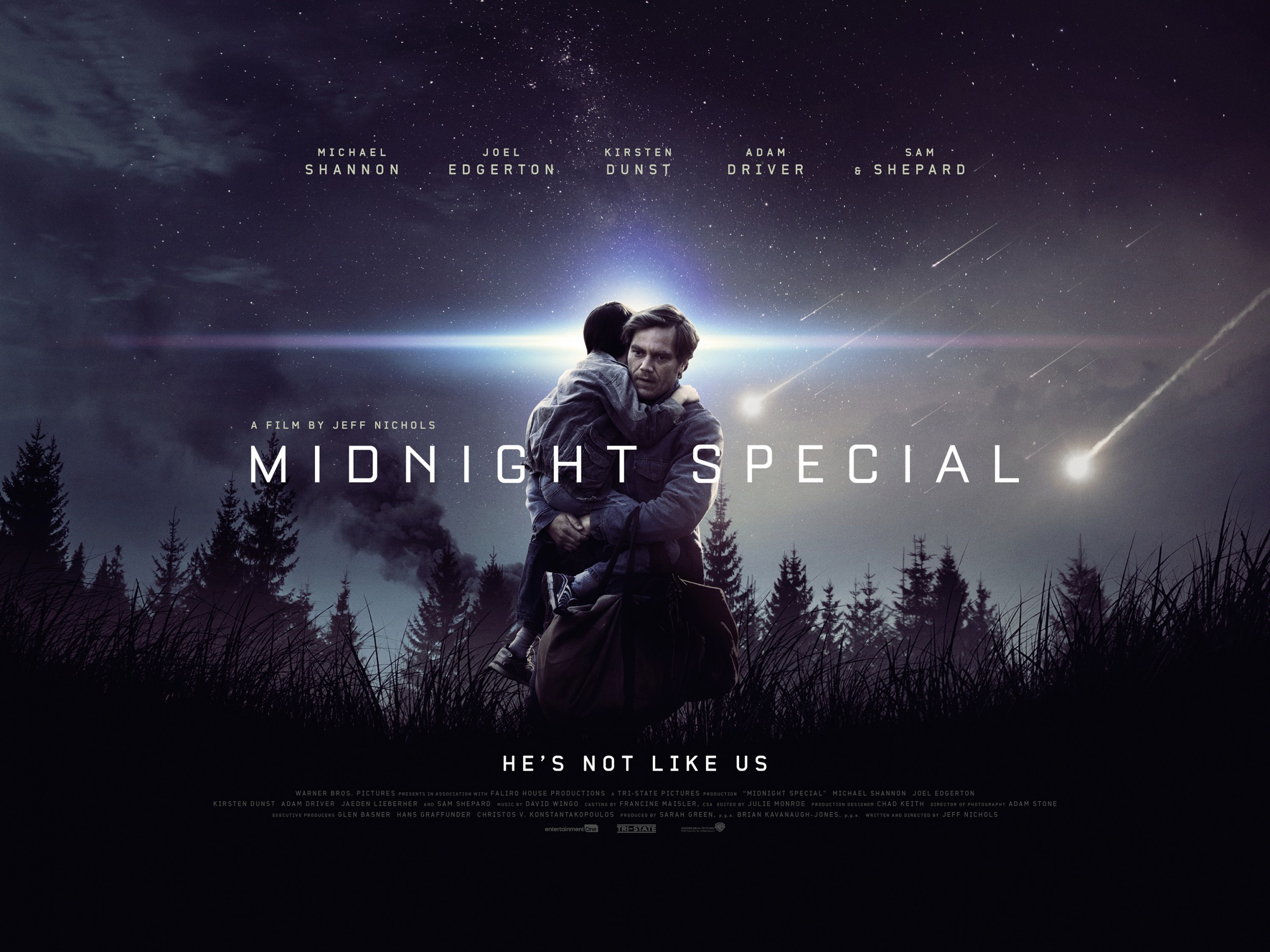Midnight Special
Posted on March 31, 2016 at 5:58 pm
B+| Lowest Recommended Age: | High School |
| MPAA Rating: | Rated PG-13 for some violence and action |
| Profanity: | Brief strong language |
| Alcohol/ Drugs: | None |
| Violence/ Scariness: | Peril and violence including guns, characters injured and killed |
| Diversity Issues: | None |
| Date Released to Theaters: | April 1, 2016 |
| Date Released to DVD: | June 20, 2016 |
| Amazon.com ASIN: | B01F5ZY4G0 |

In “Take Shelter,” writer/director Jeff Nichols gave us Michael Shannon as a man with apocalyptic visions that might have been a mental breakdown or might have been the real thing. In “Midnight Special,” Shannon again stars, this time as the father of a boy named Alton Meyer (Jaeden Lieberher of “St. Vincent”) who is being hunted both by a religious cult and the US government.
It takes a while to figure this out. We first hear an Amber alert about a missing child who has been taken from his parents and then we see two men in a seedy motel, the window covered with cardboard, and we have to suspect the worst. The child is sitting on the floor wearing goggles and industrial-grade earmuffs and is covered by a sheet.
It looks grim and gruesome, but as soon as Roy (Shannon) picks up the boy, it is clear that they are devoted to one another. Although the Amber alert referred to a couple as the missing boy’s parents, it is Roy who is Alton’s father. Roy and Alton are traveling with a man named Lucas (Joel Edgerton), who seems very committed to protecting them but not very knowledgeable. He often asks Roy questions about Alton, not to pry or to get to know him better but to be better able to protect the boy. At this point, we still don’t know what they are protecting him from, or why anyone would want to hurt him.
A religious group with women in the pastel prairie attire, with intricate braided hair, is led by Calvin Meyer (Sam Shepherd), who leads his congregation in a recital of a string of numbers. Their prayer service is interrupted by the FBI, which takes them all away in buses for questioning. They each send search teams to find the boy. Roy and Lucas take desperate measures to keep him from being found. An official from the NSA (Adam Driver, excellent) tries to figure out how an eight year old boy has access to encrypted national security data.
We begin to learn about Alton’s gifts and vulnerabilities and about the stress both have brought to Roy and the boy’s mother, Sarah (Kirsten Dunst). Lieberher is outstanding, with a gravity and dignity that tell us more about Alton than the special effects. In the movie’s most touching moment, he tells his father not to worry about him. “I like worrying about you,” Roy says.
Parents should know that this film has violence including guns, characters injured and killed, supernatural destruction, adult and child characters in peril, and brief strong language.
Family discussion: Why does Roy say he likes worrying about his son? Who is in the best position to protect someone like Alton?
If you like this, try: “Close Encounters of the Third Kind” and, for a silly and raunchy story with a similar plot, try “Paul”





